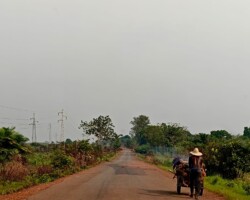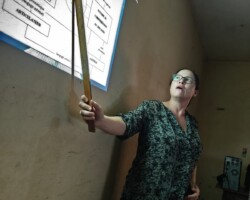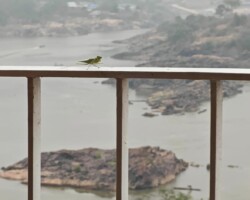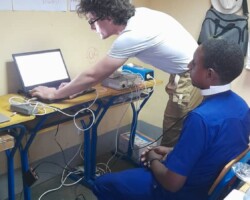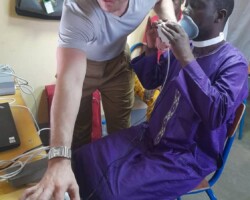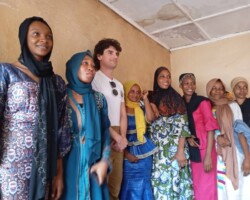From January 29 to March 30, Dr. Lorenzo Maselli, a doctor-assistant in the African Studies department and a BOF-funded postdoctoral fellow associated with the CongUbangi project, will conduct aerodynamic and articulatory research on labial-velar and implosive consonants in Bantu, Ubangi, other Niger-Congo, and Central Sudanic languages in Bangui, Central African Republic. During the first two weeks, Dr. Maselli was accompanied by Prof. Dr. Veronique Delvaux from the Université de Mons (UMONS). Together, they established a temporary phonetics lab at the Faculty of Medicine at the University of Bangui, equipped with a state-of-the-art pneumotachograph, kindly loaned by UMONS Institut Langage, and a brand-new electroglottograph purchased by Dr. Maselli specifically for this mission.
The pneumotachograph enables the collection of airflow and pressure data, while the electroglottograph monitors vocal fold vibrations. These measurements can be seamlessly paired with acoustic (spectral and waveform) traces to provide direct evidence of speech articulation. This approach allows for a comprehensive investigation of egressive and ingressive consonantal sounds, which is particularly crucial for studying implosives, as no purely acoustic cue can be considered entirely reliable for these sounds.
To date, Dr. Maselli has collected aerodynamic data from over 15 languages, with an average of five speakers per language. This project represents the most extensive phonetic documentation effort in Central Africa since the early 1960s. In addition to this research, Dr. Maselli has been teaching phonetics modules at Bangui’s Institut de Linguistique Appliquée and has established valuable collaborations with local SIL and UNESCO offices. All parties involved have expressed significant interest in the research.
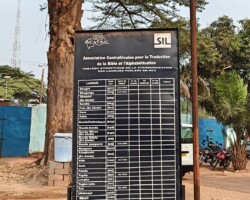
SIL works tirelessly to document CAR languages and provide reliable Bible translations to the communities
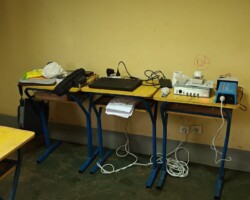
Prof. Dr. Delvaux and Dr. Maselli set up a lab at Université de Bangui on day one of their research
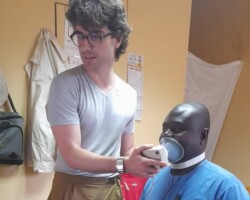
Pneumotachographic traces couple airflow and oral pressure
They are essential for the study of glottalized sounds
